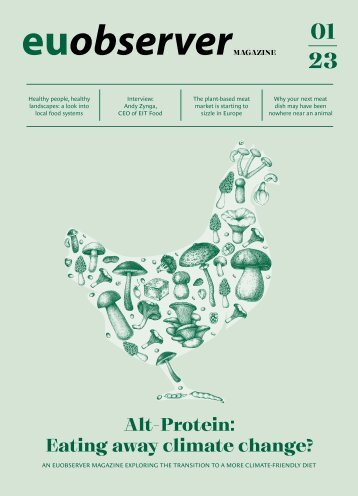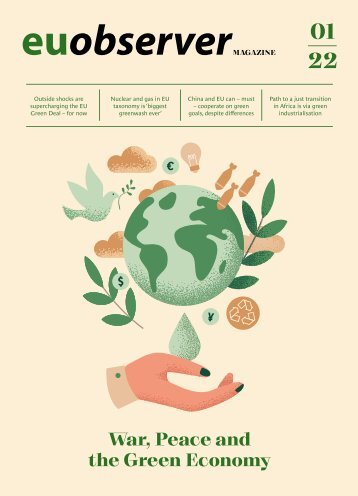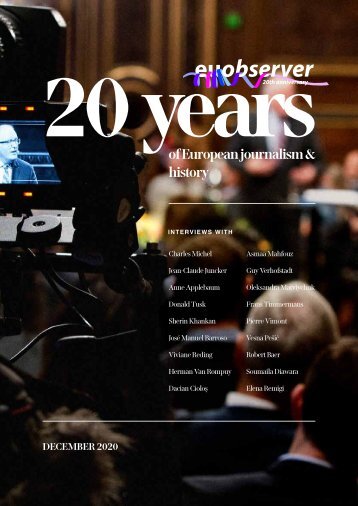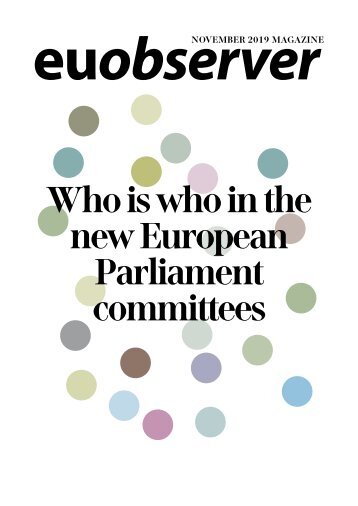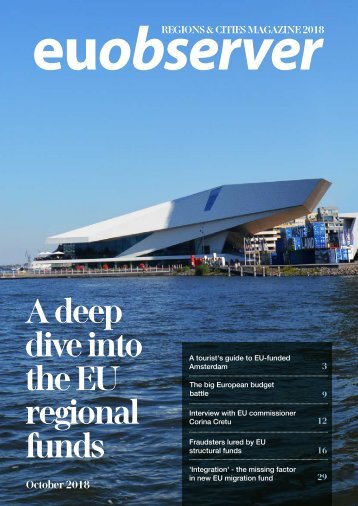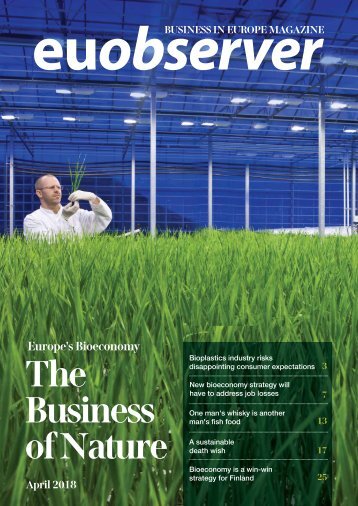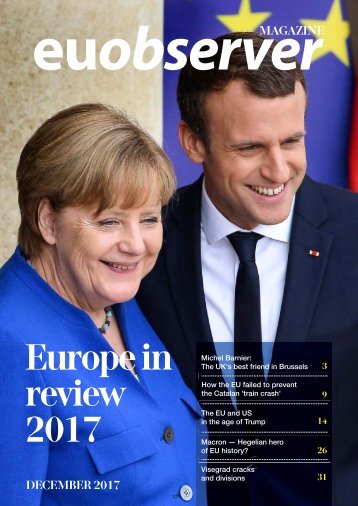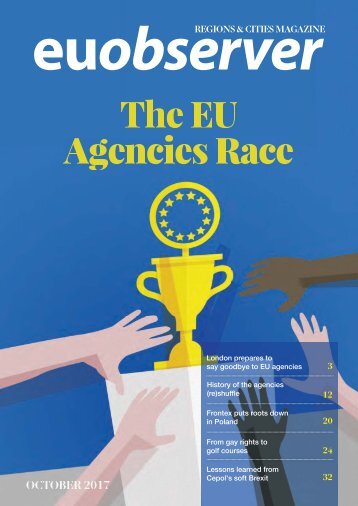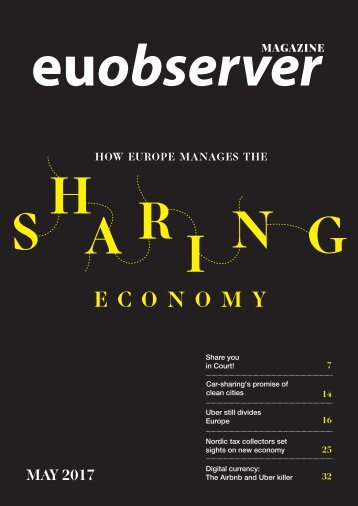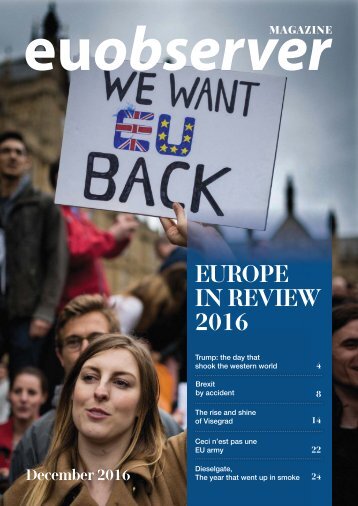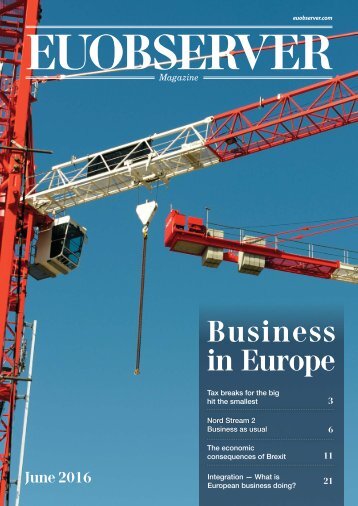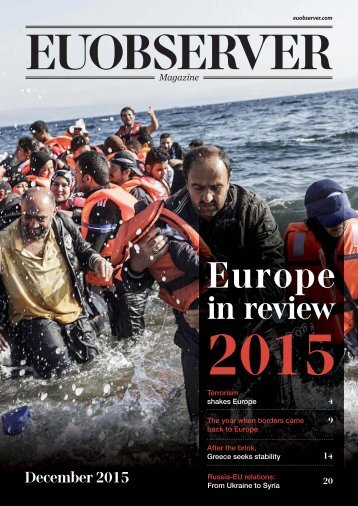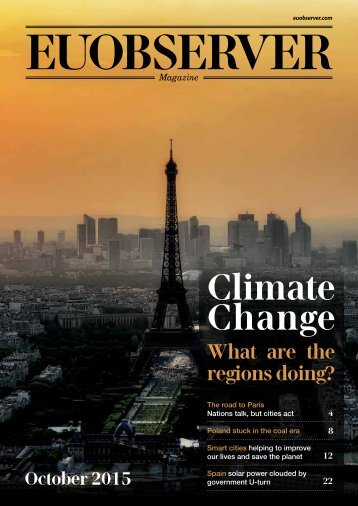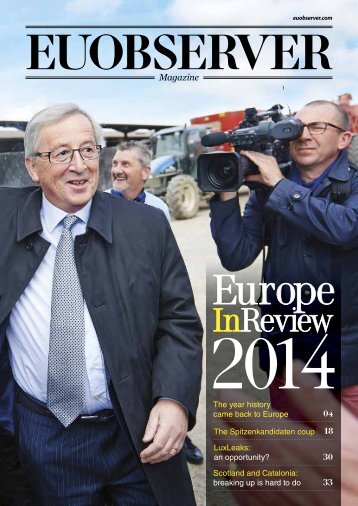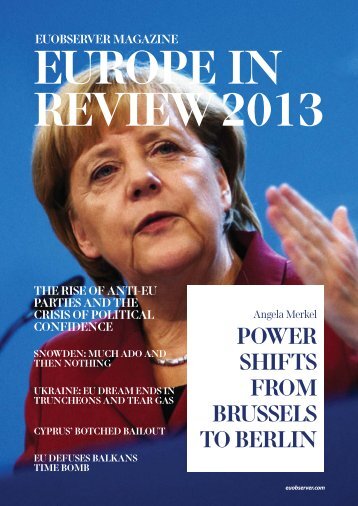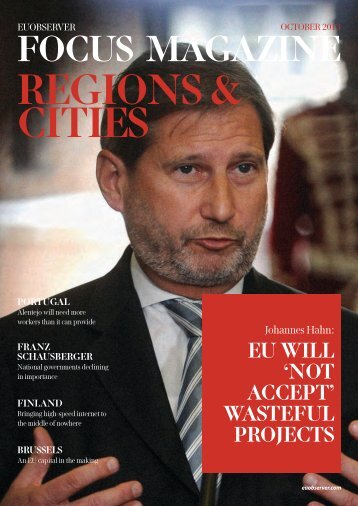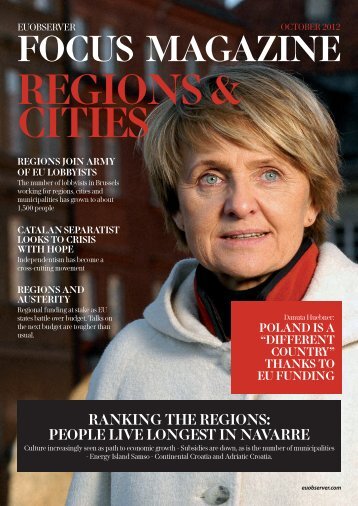Who is who in the new European Parliament committees
- Text
- Equality
- Sustainable
- Chairman
- Gender
- Defence
- Coordinators
- Climate
- Committees
- Parliament
- European
AFCO Constitutional
AFCO Constitutional Affairs Parliament should have 'initiation' role As EU leaders are keen to transform the way politics is formulated in the bloc, the constitutionals affairs committee will play a key role in the next five years in reforming electoral processes and initiating laws. By Eszter Zalan As a former president of the European Parliament, Antonio Tajani is a powerful chairman of the constitutional affairs committee (AFCO), and one who wants the EU parliament to be able to initiate legislation. "The European parliament is the only chamber directlyelected by citizens that does not hold the right of initiative," the Italian MEP from Forza Italia points out to EUobserver. He said the committee's work in the next five years will shape the future Europe, from the right of inquiry to the Future of Europe conference, through the reform of the lead candidate process (dubbed 'Spitzenkandidaten' based on the idea's German origins), to electoral law and transparency issues. "We must work hard to have a better Europe during this legislative term," Tajani said. This is a priority for his committee in the next five years, and he also wants the parliament to have the right of inquiry. Steering clear of the controversial issues, Tajani said the committee is "united in working for a better and more functioning union". "I know that these are ambitious goals," he adds, but says the EU elections in May have given these efforts a boost. "The recent elections showed an important increase of participation. For this reason, we must answer to the raising voice of European citizens," Tajani said, adding: "the EU needs to change immediately, and to strengthen the link between institutions and citizens". Tajani said that with his fellow MEPs on the committee, they will put "all our efforts to push forward all the proposals aimed at increasing the role of the European parliament". He also welcomed EU commission president-elect Ursula von der Leyen's proposals for a conference on the Future of Europe, which would start in 2020 and run for two years to bring together citizens, according to her plans. "Of course, there are different views, based on political differences and values. As chair, my role is to give voice to everyone in order to have every political groups' contribution to the major debates," he added. The Coordinators are Danuta Hubner (EPP, Poland), Domenec Ruiz Devesa (S&D, Spain), Pascal Durand (Renew, France), Daniel Freund (Greens/EFA, Germany), Gerolf Annemans (ID, Belgium), Geert Bourgeois (ECR, Netherlands), Martina Anderson (GUE/NGL, Ireland). Chair of the constitutional affairs committee, and former president of the European Parliament, Antonio Tajani (EPP, Italy) wants the parliament to be able to initiate laws. Photo: European Parliament "In my opinion, it is a key instrument to listen to our citizens' needs and concerns and, on that base, to reform deeply the European Union," Tajani said. Tajani said he hopes to speed up the process of institutional reforms. "In this regard, the AFCO committee already invited many scholars and researchers, from all over Europe, in order to investigate a potential implementation of the right of initiative," he said. 28 — EUROPEAN PARLIAMENT COMMITTEES
FEMM Women's Rights and Gender Equality Binding measures to expand gender balance Ursula von der Leyen, the first female president of the EU commission, has put a lot of emphasis on trying to create a gender-balanced EU executive. Expanding gender balance will also be a top priority for the FEMM committee. By Eszter Zalan Chairwoman Evelyn Regner (S&D, Austria) wants concrete action on gender balance from the women's rights and gender equality committee. Photo: European Parliament There is a need to expand gender balance in the political and economic sphere, and this can only be achieved by binding measures, the chair of the commintee on women's rights and gender equality, Evelyn Regner (S&D, Austria) told EUobserver. "The time for well-intentioned but ineffective declarations of intent has to be over. It's time that women are finally financial independent, because many other forms of inequality derive from not being independent," the social democrat politician said. "It is precisely in dependencyrelationships that a dramatic gap in power and representation manifests itself," she added. According to figures from the EU's statistics agency, Eurostat, there are considerable differences between EU countries. The gender pay gap ranging from less than eight percent in Belgium, Italy, Luxembourg, Poland, Romania, and Slovenia to more than 20 percent in Austria, the Czech Republic, Germany, Estonia and the UK. Regner said an understanding must be established that "real equality requires action in all political areas: in short, gender mainstreaming". It means that all policy concepts or planned actions should be assessed at all stages by how it effects different genders. The EU treaty commits to eliminating inequalities and promoting the principle of equality between women and men. The gender mainstreaming amendments have allowed the women's rights and gender equality committee (FEMM) to introduce a gender perspective into the reports of other committees on specific issues. "We will take concrete action regarding income equality, worklife balance and the fight against violence against women," Regner added. In the next five years the priority will be producing more, and binding, measures to promote gender equality. "We must achieve a binding EU gender equality strategy," Regner said, pointing to a recently published equality index by the European Institute for Gender Equality. The report said that the EU continues at a snail's pace when it comes to gender equality progress. The report said that Sweden continues to top the EU scoreboard for gender equality, followed by Denmark, and with Greece and Hungary having the most catching-up to do. The biggest improvement was achieved by Portugal and Estonia. "We have a quite clear understanding of the existing layers of inequality reaching from the economic situation to political representation and the social situation of women in Europe," Regner said, referring to the report. "The verdict is clear, we need to take more measures faster. The status quo in matters of equality is far from satisfactory," she said. Regner expects that the most divisive issues will be all matters "touching upon sexual and reproductive rights of women", which show "a clear divide between member states and political groups". "It shows that women's rights are at risk once again. What has been achieved can easily be lost again. In this regard, I want to strengthen the role of the European parliament as a guarantor of women's rights in Europe," she said. Regner added that what often lies behind the regression is a misconception of what family means. Yet the world is so colourful, she added, saying there are many different ways of life. "And basically, that is what it's all about. That everyone is able to lead their lives without compulsion, pressure or fear", Regner added. Coordinators (to be confirmed): Frances Fitzgerald (EPP, Ireland), Maria Noichl (S&D, Germany), Irene Tolleret (Renew, France), Alice Kuhnke (Greens/EFA, Sweden), Christine Anderson (ID, Germany), Jadwiga Wisniewska (ECR, Poland), Sandra Pereira (GUE/NGL, Portugal). EUROPEAN PARLIAMENT COMMITTEES — 29
- Page 1 and 2: NOVEMBER 2019 MAGAZINE Who is who i
- Page 3 and 4: euobserver EDITORIAL ADDRESS EUobse
- Page 5 and 6: The committees then vote on final d
- Page 7 and 8: AFET EU diplomacy 2.0 Foreign Affai
- Page 9 and 10: SEDE EU buys guns Gearing up for EU
- Page 11 and 12: INTA Making EU trade deals work for
- Page 13 and 14: CONT Fighting corruption and cuttin
- Page 15 and 16: EMPL Employment and Social Affairs
- Page 17 and 18: 17 — EUROPEAN PARLIAMANT COMMITTE
- Page 19 and 20: SUSTAINABLE RESPONSIBLE COMPETITIVE
- Page 21 and 22: TRAN Tackling climate change throug
- Page 23 and 24: AGRI Agriculture and Rural Developm
- Page 25 and 26: CULT Culture and Education A bigger
- Page 27: LIBE Civil Liberties, Justice and H
- Page 31 and 32: BRUSSELS 10 NOVEMBER 2019 Letter to
Inappropriate
Loading...
Mail this publication
Loading...
Embed
Loading...

